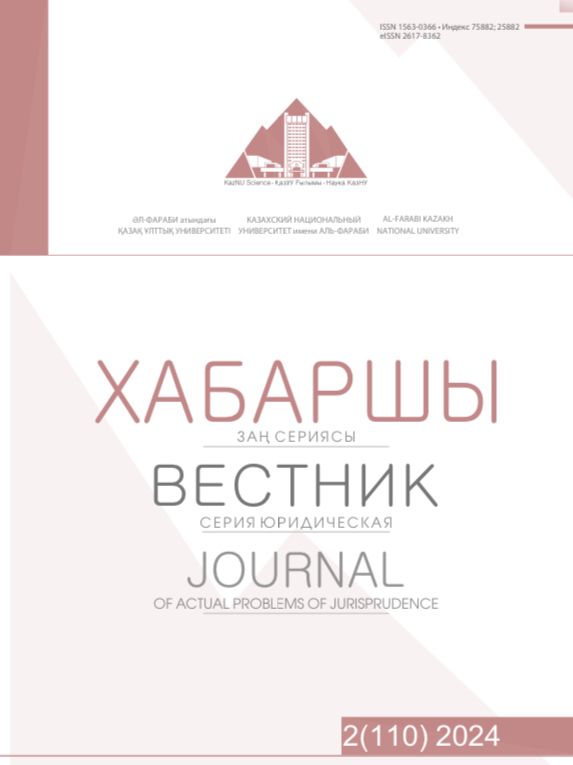STALKING AS A NEW FORM OF VIOLENCE: ITS CONNECTION WITH AMBIVALENT SEXISM, ATTITUDE TO GENDER-BASED VIOLENCE
DOI:
https://doi.org/10.26577/JAPJ2024-110-b-013Abstract
In this article, stalking examines in detail views as a new type of violence, the psychological concepts and theories associated with them. In our country, stalking is not studied from a socio-psychological point of view. The purpose of the research is to study various forms of stalking. Stalking can be classified into three types: stalking an ex-partner, stalking an acquaintance, and stalking a stranger. A study of associations between sexist and sexually violent relationships. The concept was developed by analyzing the main results of scientific research by foreign researchers. By studying ambivalent sexism, an analysis of their types was conducted and studies of their interconnectedness showed that people with high kind sexist views are more likely to blame the victim. The stalker's actions are mostly focused on the threat; in addition, some of their actions are seen as even physical violence, which can be a precedent for violence such as psychological violence. Also, not limited to the works of lawyers, he used the research of psychologists. Traditional gender roles and attitudes towards women play an important role in addressing stalking and gender-based violence. In the study, the concepts of rape were associated with sexist attitudes. In order to prevent stalking, an analysis of ambivalent sexism was conducted and it was planned to change the stalker's thinking.
Keywords: stalking, stalker, sexism, ambivalent sexism, gender-based violence.



